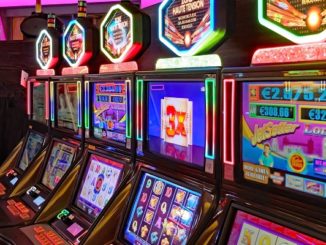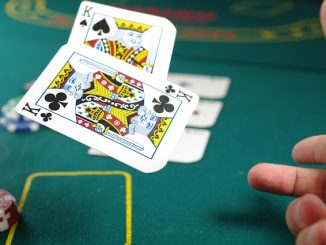
The Pennsylvania Gaming Control Board’s (PGCB) Executive Director, Kevin O’Toole, is requesting the state’s lawmakers to resolve the skill gaming dispute soon.
Many grocery stores, gas stations, bars, and restaurants offer skill gaming machines in the Commonwealth. Besides, certain standalone land-based retail sites concentrate on gaming devices.
O’Toole recently told the Pennsylvania Senate Democratic Policy Committee that the legislators have to intervene in the issue and decide to ban, legalize, and monitor the machines. However, the lawmakers are currently working out of players’ or the state’s best interest.
Skill-based gaming is working in an uncertain legal landscape as the legislature hasn’t formed a law against it. Therefore, O’Toole emphasizes that a legal determination on gaming is inevitable.
Pennsylvania’s licensed commercial casino industry representatives and the Pennsylvania Lottery officials claim that skill gaming machines generate revenue from highly taxed and controlled operations.
Yet, the games’ opponents say that they have caused a $250 million decrease in tax revenue obtained from casinos and lottery. They would have generated that money if the games weren’t widespread in the state.
The Keystone State doesn’t regulate skill games. It lacks consumer protections like assurances that gaming operators will prevent underage players from accessing skill game machines or a guaranteed minimum payout rate.
Even so, it doesn’t tax operators for their skill gaming revenue. Instead, the host business, route distributor, and machine manufacturer share the money.
Is a Consensus Necessary?
Skill games share the same appearance, operation mode, and sound with slot machines. However, a client’s gameplay has an influence on the outcome. This is common when a player is selecting the winning payline, unlike a slot machine that does it for the player.
Skill games, their proponents, and one or more state judges remove the gaming machines for the Pennsylvania Gaming Act’s regulatory oversight as it applies in games of chance.
This is evident in a 2019 ruling by Commonwealth Court Judge Patricia McCullough, stating that the legislation doesn’t control skill game machines. Thus, law enforcers shouldn’t seize them and arrest their operators.
The PGCB claims that such machines comprise games of chance and gambling. The games’ proponents state that their revenue has greatly helped small enterprises to cope with the soaring workers’ hiring costs and inflation.
O’Toole still believes that the General Assembly has to address the issue. It has the choice to prohibit gaming machines or allow and tax them.
The gaming board’s executive director added that he wishes lawmakers would amend the current Gaming Act for the PGCB to start regulating skill gaming operations.
He said that in case the General Assembly legalizes the games, they should give the board the mandate to monitor them. Besides, it has the experience and capability to track slot machines.
Senator Gene Yaw (R-Lycoming) introduced a constitutional amendment proposal a few months ago, intending to form a regulatory framework for such games.
The bill wanted gaming distributors and manufacturers to pay a one-time licensing fee of $1 million. Also, every host business would pay a $250 annual fee.
100% up to $3,000 Bonus
Bovada is our most recommended ONLINE CASINO and POKER ROOM for US players with excellent deposit options. Get your 100% signup bonus today.





Leave a Reply
You must be logged in to post a comment.